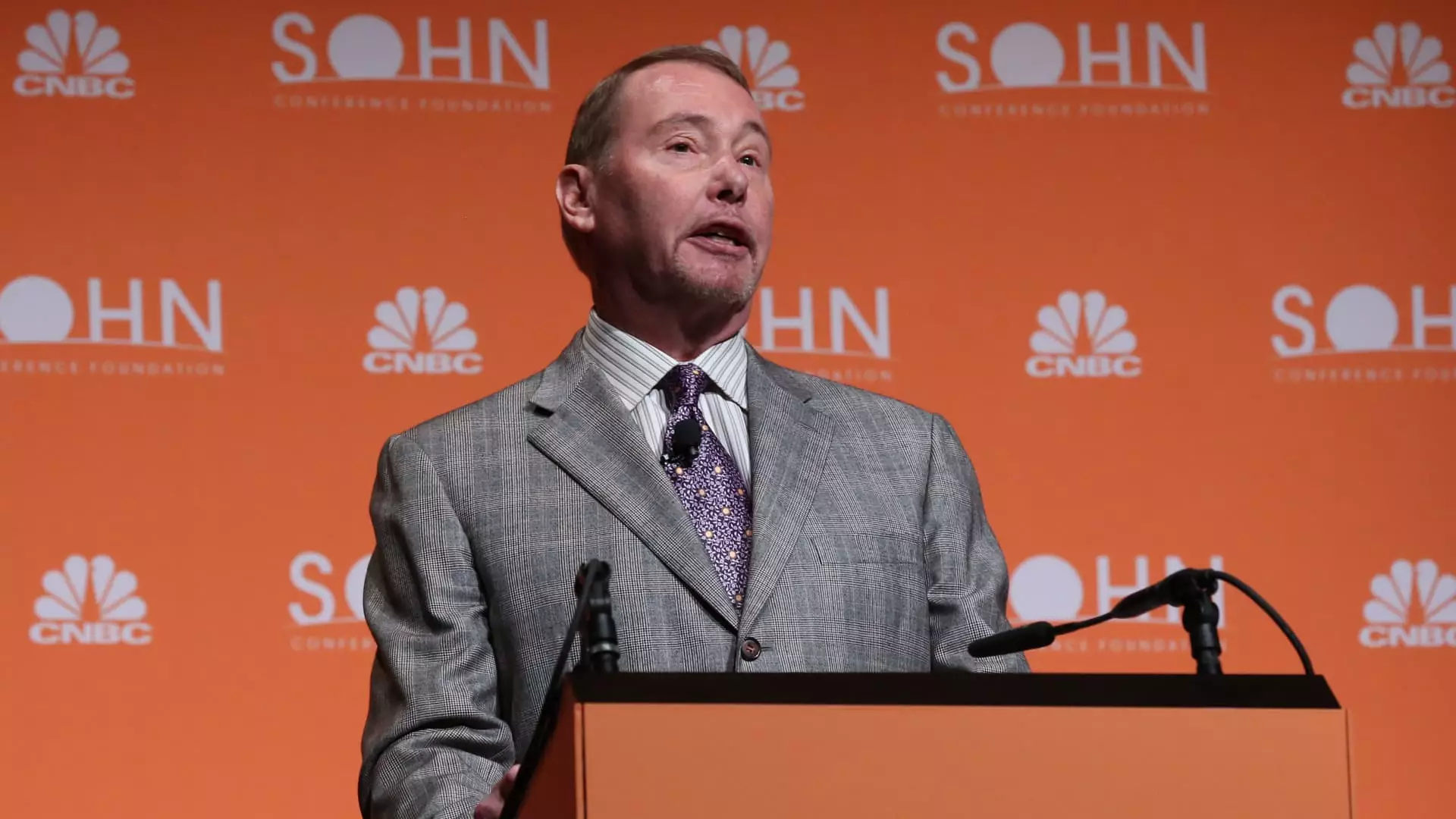The dynamics of the U.S. political landscape have far-reaching implications, particularly concerning economic policy and interest rates. Recent discussions fueled by key figures in the investment community, like Jeffrey Gundlach, CEO of DoubleLine Capital, suggest that shifts in Congressional control could significantly affect fiscal spending and borrowing practices. Notably, if Republicans maintain control of the House, there are predictions that increased government expenditure through initiatives led by the incoming administration may fuel a rise in interest rates.
Gundlach highlights a scenario in which heightened governmental spending necessitates additional borrowing via Treasury bonds, potentially leading to elevated bond yields. The crux of this argument rests on the assumption that an aligned Republican leadership will prioritize expansive fiscal measures, including tax cuts and stimulus strategies, which may inadvertently inflate the national debt beyond its staggering $36 trillion level. This has sparked concerns among investors, especially given the already precarious fiscal outlook characterized by a significant budget deficit exceeding $1.8 trillion for the fiscal year 2024.
Responses from Financial Markets and the Federal Reserve
The financial markets respond keenly to political shifts, particularly regarding the Federal Reserve’s actions. On the same day Gundlach made his comments, the Federal Reserve opted for a rate cut, igniting speculation about future cuts as well. Analysts project further reductions in 2025, reflecting a cautious approach in the face of unpredictable economic trajectories. With the Fed’s mandate to stabilize prices and maximize employment, understanding its potential responses to a Republican-controlled House becomes crucial. Would the central bank maintain its accommodative stance if government spending escalates, or would it confront inflationary pressures by hiking rates?
The potential for Ted Trump’s administration to pursue aggressive fiscal policies, including extending previous tax cuts, raises questions about the sustainability of such an approach. Gundlach articulates a direct correlation: as tax cuts enhance spending capacity, they could also exacerbate the federal deficit, intensifying the financial burden on future administrations. Investors are left wondering how these changes shape interest rates in the long term.
The Broader Economic Picture and Recession Risks
Interestingly, amid all the concerns regarding rising interest rates and deficits, Gundlach posits that the Trump presidency may inadvertently lower the odds of a near-term recession. This perspective suggests a contradiction where aggressive fiscal policies might stimulate immediate economic activity, thereby warding off recession risks in the short run. The narrative advocates that despite escalating fiscal challenges, the potential for stimulating the economy through extensive spending could invigorate market confidence and spur growth.
Moreover, this view raises essential discussions among economists and investors alike—how will looming fiscal challenges evolve against a backdrop of political volatility, and what are the immediate ramifications on growth prospects? As the nation braces for possible shifts in policy, the dialogue between governmental control, fiscal responsibility, and economic stability will remain a central theme in the financial discourse. Ultimately, the implications of these factors underline a critical intersection of politics and economics, making market forecasting increasingly complex in the face of evolving political scenarios.


Leave a Reply